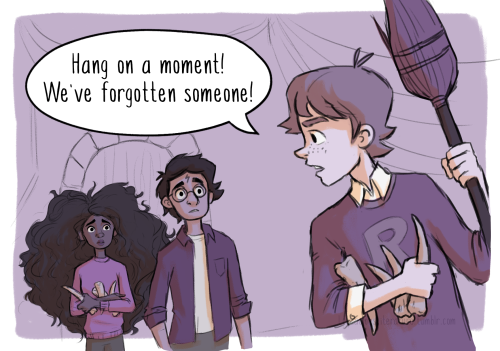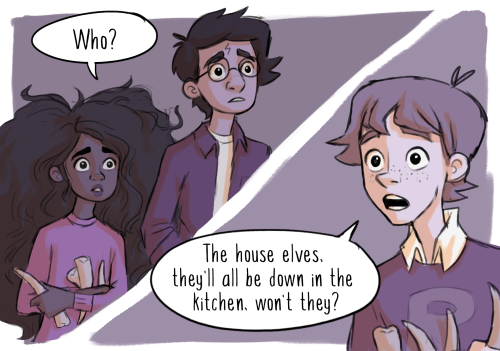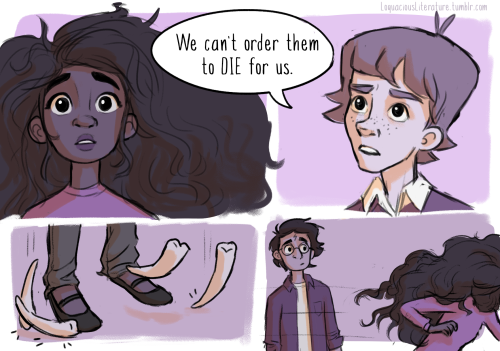100 Days Of Productivity
100 days of productivity
hey guys! some of you may have noticed that lately I have been posting daily pictures with a concept called 100 days of productivity. at first, this was just a method I was using to keep myself on track, but after receiving multiple messages either asking permission to use the idea or asking to explain the idea, I’ve decided to make a post to explain this and hopefully get other blogs in on it!
what is it about?
the general idea of 100 days of productivity is to make sure that everyday you do something- anything productive. it embraces the concept that by chipping away at least a little bit of that big pile of work we all have every day, we can make huge changes for the future.
how can I join?
its simple! just post a picture everyday with which day it is out of 100 (ex: 3/100 days of productivity) and tag it as 100 days of productivity. keep this going for 100 days straight and see how much you’ve accomplished!!
help get the word out!!
reblog this post to help let other studyblrs know about this idea!! as I really would like this to get out there, I will be following many of the people I see using this tag!!
disclaimer: I am not claiming to be the first person to use this concept. I did not steal this idea from anyone and did come up with it on my own, but I have also been made aware that others have used this idea before!!
happy studying everyone!!
More Posts from Decadentheartflower and Others
50 Top Online Learning Sites

Rejoice fellow uni students looking for some studyspo, we urge you to take a few free lessons, as well as academic lessons provided from actual universities on several topics. Have a look at the 50 top learning sites you can find online to help you save some time.
Art and Music
Dave Conservatoire — Dave Conservatoire is an entirely free online music school offering a self-proclaimed “world-class music education for everyone,” and providing video lessons and practice tests.
Drawspace — If you want to learn to draw or improve your technique, Drawspace has free and paid self-study as well as interactive, instructor-led lessons.
Justin Guitar — The Justin Guitar site boasts over 800 free guitar lessons which cover transcribing, scales, arpeggios, ear training, chords, recording tech and guitar gear, and also offers a variety of premium paid mobile apps and content (books/ ebooks, DVDs, downloads).
Math, Data Science and Engineering
Codecademy — Codecademy offers data science and software programming (mostly Web-related) courses for various ages groups, with an in-browser coding console for some offerings.
Stanford Engineering Everywhere — SEE/ Stanford Engineering Everywhere houses engineering (software and otherwise) classes that are free to students and educators, with materials that include course syllabi, lecture videos, homework, exams and more.
Big Data University — Big Data University covers Big Data analysis and data science via free and paid courses developed by teachers and professionals.
Better Explained — BetterExplained offers a big-picture-first approach to learning mathematics — often with visual explanations — whether for high school algebra or college-level calculus, statistics and other related topics.
Design, Web Design/ Development
HOW Design University — How Design University (How U) offers free and paid online lessons on graphic and interactive design, and has opportunities for those who would like to teach.
HTML Dog — HTML Dog is specifically focused on Web development tutorials for HTML, CSS and JavaScript coding skills.
Skillcrush — Skillcrush offers professional web design and development courses aimed at one who is interested in the field, regardless of their background — with short, easy-to-consume modules and a 3-month Career Blueprints to help students focus on their career priorities.
Hack Design — Hack Design, with the help of several dozen designers around the world, has put together a lesson plan of 50 units (each with one or more articles and/or videos) on design for Web, mobile apps and more by curating multiple valuable sources (blogs, books, games, videos, and tutorials) — all free of charge.
General – Children and Adults
Scratch – Imagine, Program, Share — Scratch from MIT is a causal creative learning site for children, which has projects that range from the solar system to paper planes to music synths and more.
Udemy — Udemy hosts mostly paid video tutorials in a wide range of general topics including personal development, design, marketing, lifestyle, photography, software, health, music, language, and more.
E-learning for kids — E-learning for Kids offers elementary school courses for children ages 5-12 that cover curriculum topic including math, science, computer, environment, health, language, life skills and others.
Ed2go — Ed2go aims their “affordable” online learning courses at adults, and partners with over 2,100 colleges and universities to offer this virtual but instructor-led training in multiple categories — with options for instructors who would like to participate.
GCF Learn Free — GCFLearnFree.org is a project of Goodwill Community Foundation and Goodwill Industries, targeting anyone look for modern skills, offering over 1,000 lessons and 125 tutorials available online at anytime, covering technology, computer software, reading, math, work and career and more.
Stack Exchange — StackExchange is one of several dozen Q+A sites covering multiple topics, including Stack Overflow, which is related to computer technology. Ask a targeted question, get answers from professional and enthusiast peers to improve what you already know about a topic.
HippoCampus — HippoCampus combines free video collections on 13 middle school through college subjects from NROC Project, STEMbite, Khan Academy, NM State Learning Games Lab and more, with free accounts for teachers.
Howcast — Howcast hosts casual video tutorials covering general topics on lifestyle, crafts, cooking, entertainment and more.
Memrise — Lessons on the Memrise (sounds like “memorize”) site include languages and other topics, and are presented on the principle that knowledge can be learned with gamification techniques, which reinforce concepts.
SchoolTube — SchoolTube is a video sharing platform for K-12 students and their educators, with registered users representing over 50,000 schools and a site offering of over half a million videos.
Instructables — Instructables is a hybrid learning site, offering free online text and video how-to instructions for mostly physical DIY (do-it-yourself) projects that cover various hands-on crafts, technology, recipes, game play accessories and more. (Costs lie in project materials only.)
creativeLIVE — CreativeLive has an interesting approach to workshops on creative and lifestyle topics (photography, art, music, design, people skills, entreprenurship, etc.), with live access typically offered free and on-demand access requiring purchase.
Do It Yourself — Do It Yourself (DIY) focuses on how-tos primarily for home improvement, with the occasional tips on lifestyle and crafts topics.
Adafruit Learning System — If you’re hooked by the Maker movement and want to learn how to make Arduino-based electronic gadgets, check out the free tutorials at Adafruit Learn site — and buy the necessary electronics kits and supplies from the main site.
Grovo — If you need to learn how to efficiently use a variety of Web applications for work, Grovo has paid (subscription, with free intros) video tutorials on best practices for hundreds of Web sites.
General College and University
edX — The edX site offers free subject matter from top universities, colleges and schools from around the world, including MIT and Harvard, and many courses are “verified,” offering a certificate of completion for a nominal minimum fee.
Cousera — Coursera is a learning site offering courses (free for audit) from over 100 partners — top universities from over 20 countries, as well as non-university partners — with verified certificates as a paid option, plus specializations, which group related courses together in a recommended sequence.
MIT Open Courseware — MIT OpenCourseWare is the project that started the OCW / Open Education Consortium [http://www.oeconsortium.org], launching in 2002 with the full content of 50 real MIT courses available online, and later including most of the MIT course curriculum — all for free — with hundreds of higher ed institutions joining in with their own OCW course materials later.
Open Yale Courses — Open Yale Courses (OYC) are free, open access, non-credit introductory courses recorded in Yale College’s classroom and available online in a number of digital formats.
Open Learning Initiative — Carnegie Mellon University’s (CMU’s) Open Learning Initiative (OLI) is course content (many open and free) intended for both students who want to learn and teachers/ institutions requiring teaching materials.
Khan Academy — Khan Academy is one of the early online learning sites, offering free learning resources for all ages on many subjects, and free tools for teachers and parents to monitor progress and coach students.
MIT Video — MITVideo offers over 12,000 talks/ lecture videos in over 100 channels that include math, architecture and planning, arts, chemistry, biological engineering, robotics, humanities and social sciences, physics and more.
Stanford Online — Stanford Online is a collection of free courses billed as “for anyone, anywhere, anytime” and which includes a wide array of topics that include human rights, language, writing, economics, statistics, physics, engineering, software, chemistry, and more.
Harvard Extension School: Open Learning Initiative — Harvard’s OLI (Open Learning Initiative) offers a selection of free video courses (taken from the edX selection) for the general public that covers a range of typical college topics, includings, Arts, History, Math, Statistics, Computer Science, and more.
Canvas Network — Canvas Network offers mostly free online courses source from numerous colleges and universities, with instructor-led video and text content and certificate options for select programs.
Quantum Physics Made Relatively Simple — Quantum Physics Made Relatively Simple” is, as the name implies, a set of just three lectures (plus intro) very specifically about Quantum Physics, form three presentations given by theoretical physicist Hans Bethe.
Open UW — Open UW is the umbrella initiative of several free online learning projects from the University of Washington, offered by their UW Online division, and including Coursera, edX and other channels.
UC San Diego Podcast Lectures — Podcast USCD, from UC San Diego, is a collection of audio and/or video podcasts of multi-subject university course lectures — some freely available, other only accessible by registered students.
University of the People — University of the People offers tuition-free online courses, with relatively small fees required only for certified degree programs (exam and processing fees).
NovoEd — NovoEd claims a range of mostly free “courses from thought leaders and distinguished professors from top universities,” and makes it possible for today’s participants to be tomorrow’s mentors in future courses.
IT and Software Development
Udacity — Udacity offers courses with paid certification and nanodegrees — with emphasis on skills desired by tech companies in Silicon Valley — mostly based on a monthly subscription, with access to course materials (print, videos) available for free.
Apple Developer Site — Apple Developer Center may be very specific in topics for lessons, but it’s a free source of documentation and tutorials for software developers who want to develop apps for iOS Mobile, Mac OS X desktop, and Safari Web apps.
Google Code — As with Apple Developer Center, Google Code is topic-narrow but a good source of documentation and tutorials for Android app development.
Code.org — Code.org is the home of the “Hour of Code” campaign, which is aimed at teachers and educators as well as students of all ages (4-104) who want to teach or learn, respectively, computer programming and do not know where to start.
Mozilla Developer Network — MDN (Mozilla Developer Network) offers learning resources — including links to offsite guides — and tutorials for Web development in HTML, CSS and JavaScript — whether you’re a beginner or an expert, and even if you’re not using Mozilla’s Firefox Web browser.
Learnable — Learnable by Sitepoint offers paid subscription access to an ebook library of content for computers and tablets, and nearly 5,000 videos lessons (and associated code samples) covering software-related topics – with quizzes and certification available.
Pluralsight — Pluralsight (previously PeepCode) offers paid tech and creative training content (over 3,700 courses and 130K video clips) for individuals, businesses and institutions that covers IT admin, programming, Web development, data visualization — as well as game design, 3D animation, and video editing through a partnership with Digital-Tutors.com, and additional software coding lessons through Codeschool.com.
CodeHS — CodeSchool offers software coding lessons (by subscription) for individuals who want to learn at home, or for students learning in a high school teacher-led class.
Aquent Gymnasium — Gymnasium offers a small but thorough set of free Web-related lesson plans for coding, design and user experience, but filters access by assessing the current knowledge of an enrollee and allows those with scores of at least 70% to continue.










Hard to argue with that logic. ¯\_(ツ)_/¯
(Thank you to the MANY lovely people that recommended this scene from Deathly Hallows!)
7 Reasons you might be procrastinating and how to solve them:



Hush!
Yoo-hoo! Got through one of the toughest practical exam today! So happy :D I spent the day before the exam fretting and worrying and praying and sometimes studying in between xD Oh relief!
How to write a bomb ass personal statement
I’ve had a few asks about how to write - as one of you put it - a bomb ass personal statement. I’m a bit reluctant to write this, seeing as I haven’t actually got an interview/offer yet! But I guess it might be helpful to those of you applying around now :)
HOW TO START
Bullet point what you want to include - I suggest listing out what you want to include. It’s a good idea to do this at the beginning, to make sure you don’t leave anything out; and it can help form the basic structure of your statement.
Do not start at the start - this is one of the most important things I learnt when writing mine. It is so hard to write that first sentence - so just leave it until the end, and begin writing with the actual content, something you’re more comfortable writing about.
When you do get down to writing that first sentence - do not start with a cheesy quote or the typical “I have always bee passionate about…” as these are things that can immediately put off an admissions tutor. Try and be original, or just simple: “I want to study X because…”
THE CONTENT
Just keep writing - don’t worry about the 4,000 character and 47 line limits. Literally just write, and keep going, even if you think what you’re writing is bad - just get all your ideas out there, and put down everything you would want to include. It’s so much easier to take things out rather than adding things in. My personal statement was around 8,000 characters at one point!`
Get the balance right - different unis want different things from personal statements, so check their websites to make sure you’re getting in what they want. You need to get the balance of intellectual curiosity/passion for the subject with your personal qualities and extra-curriculars.
Back up everything with evidence - don’t just say you are great at working in a team, give examples that demonstrate that you have worked well in successful teams in the past.What to include?
WHAT TO INCLUDE
Why you want to study that particular course
Why you are the right person to study the course
Extra things you have done to show commitment or interest about the course - volunteering, subscriptions to journals, further reading etc.
Any relevant work experience
Any relevant awards you’ve won (e.g. maths challenge or physics olympiad) or responsibilities within the school (e.g. prefect or house captain)
Demonstrate desirable skills for your course - problem solving, teamwork, leadership etc.
WHAT NOT TO INCLUDE
Cliches - like “Ever since I was born I have wanted to study…”
Quotes - this is a personal statement, so don’t start quoting other people! Plus way too many people do this to make it original.
Jokes - it may be that the person reading your statement has a very different sense of humour than you do.
Really long sentences - you want your personal statement to be as easy as possible to read, and long confusing sentences won’t help that.
Repetition - it’s such a short document, you don’t have space for this. Plus it gets boring!
Names of unis - the unis you apply to have no idea where else you have applied, so don’t name any of them in your statement.
THE ENDING
Do not end on a cheesy quote or joke. Just sum up why you’d be a great candidate and reinforce what you have told them throughout the main body of the statement - that you’re fabulous!
Once you have finished a draft you can start trying to cut down on the word count. Maybe ask a teacher to look at your spelling/grammar, and you can always get your friends’ opinions too, on what should come out, and what should be kept in. Make sure you don’t let other people have too much influence - it has to be a personal statement!
It’s 2017. You need motivation? No, what you need is discipline. IT’S TIME TO FOCUS. Force yourself to do things. Force yourself to get up early, make your bed, go get ready, and go. Force yourself to make plans for the day, and follow through with all those plans. Force yourself to get to class early so you can look over the material. Force yourself to pay attention in class and turn off your phone or at least put it on silent. Stop texting your friends and going on Instagram in class. You are wasting your time, so why even bother going to class if your are going to be distracted? Be selfish. Stop giving your time to people that do not matter. YOUR TIME IS SO SO PRECIOUS. STOP WASTING IT! This is the most important thing that you can do right now, take care of you and your education. Stop being distracted by the world and it’s never ending problems. This is the time that you need to put toward yourself because you are the greatest investment of your life. EVERY. SINGLE. DAY. EVERYDAY is a chance to wake up and give your 150%. EXHAUST yourself. That is the only way to give your all. At the end of the day, you should be exhausted from working so much, from reading so much, from exercising so much. Don’t go home because you are tired. Do whatever you need to get done and don’t come home until it’s all done. Stay late at the library. You feel tired? Good. That is how you know you are giving it your best. Go to the gym, and give your work out your all. When you go home, you should feel like you are drained. You should feel like you have nothing left to give because you gave it your all. Because then, you can be proud of yourself and everything you have achieved. Giving it your all is what matters. Give your all every single day. Discipline your mind and your body and you will become successful. You fall back one day? That is O.K., try the next day. You are human, so accept your mistakes. However, love yourself enough to know that you will never give up working on yourself and your dreams. THIS IS IT. THIS IS YOUR LIFE. Right now, no matter what circumstances we are all in, is what matters. Take advantage of today. Write down your dreams and force yourself to work toward them, one day at a time. IT’S TIME TO FOCUS. THIS is your year. This is your life. One day at a time baby. One day at a time. Go ahead and don’t stop.
(via not-now-im-studying)
Breaks.
So for the last week, I did nothing. In the beginning of the week, I had a cold and fever and I couldn't focus, so I rested. Later, as I got better, I started losing motivation because I just wanted to continue resting. I began to feel like I could catch up if I compromised on my study process. Only reading could do, I don't need to take notes, I will revise everything again. And I tried doing that, but it dosent work. So what did I do to get my motivation back? I talked to my sweet friends, who helped get back on track. I came to Tumblr to find so many others who were finding it hard like me. This is such a wonderful encouraging community, and I feel so happy to be a part of it. ♥️


When you have some time to kill you naturally head to the nearest starbucks and make a dent in Free food for Millionaires

-
 tinywizardsuit liked this · 7 months ago
tinywizardsuit liked this · 7 months ago -
 maxwellgetsalife reblogged this · 7 months ago
maxwellgetsalife reblogged this · 7 months ago -
 mxmcmoon liked this · 7 months ago
mxmcmoon liked this · 7 months ago -
 thefemininerage liked this · 10 months ago
thefemininerage liked this · 10 months ago -
 abookyettobenamed liked this · 11 months ago
abookyettobenamed liked this · 11 months ago -
 f1madness liked this · 1 year ago
f1madness liked this · 1 year ago -
 lenniedoesthings liked this · 1 year ago
lenniedoesthings liked this · 1 year ago -
 olcremifolti liked this · 1 year ago
olcremifolti liked this · 1 year ago -
 mary-mania liked this · 1 year ago
mary-mania liked this · 1 year ago -
 konacian liked this · 1 year ago
konacian liked this · 1 year ago -
 rat-in-your-basement liked this · 1 year ago
rat-in-your-basement liked this · 1 year ago -
 hhhoneyed liked this · 1 year ago
hhhoneyed liked this · 1 year ago -
 moonsoupstar-ao3 liked this · 2 years ago
moonsoupstar-ao3 liked this · 2 years ago -
 aesthecafe liked this · 2 years ago
aesthecafe liked this · 2 years ago -
 randomlycreatedblog liked this · 2 years ago
randomlycreatedblog liked this · 2 years ago -
 maistudies liked this · 2 years ago
maistudies liked this · 2 years ago -
 jackalgirl-01 liked this · 2 years ago
jackalgirl-01 liked this · 2 years ago -
 mysticalsoundgarden liked this · 2 years ago
mysticalsoundgarden liked this · 2 years ago -
 sislearning liked this · 2 years ago
sislearning liked this · 2 years ago -
 kashmoneyswag reblogged this · 2 years ago
kashmoneyswag reblogged this · 2 years ago -
 studybugz reblogged this · 2 years ago
studybugz reblogged this · 2 years ago -
 dreams-in-inks liked this · 2 years ago
dreams-in-inks liked this · 2 years ago -
 friendlyuser05 liked this · 2 years ago
friendlyuser05 liked this · 2 years ago -
 1-800-simping liked this · 2 years ago
1-800-simping liked this · 2 years ago -
 princessnefertankh liked this · 3 years ago
princessnefertankh liked this · 3 years ago -
 persimmonteas liked this · 3 years ago
persimmonteas liked this · 3 years ago